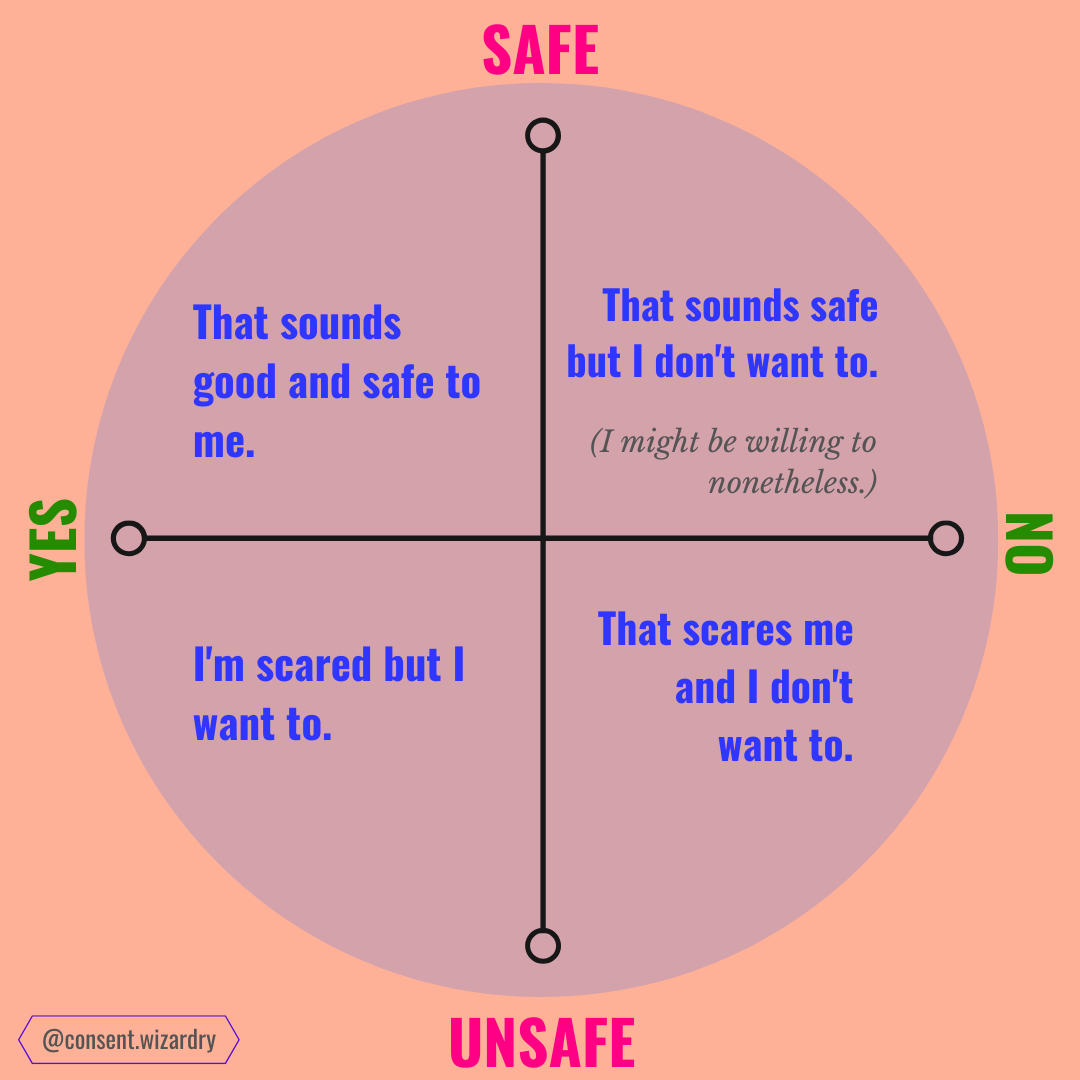What would you like to ask a consent educator? Submit your questions here and I’ll answer them on this Substack.
Being a paid subscriber supports getting anti-carceral consent education as far and wide as possible. If you’re in a country where the exchange rate makes a subscription inaccessible, email hello@sharetheloadinc.com for a 90% off code.
From my book, Unsolicited Advice: A Consent Educator's (Canceled) Memoir, only on Substack.
The book starts here.
Monday May 17, 2021, 9:23am
I saw Seneca [my cousin], Regina, and Elijah [his wife and 8-year-old son] and almost fucking murdered their new puppy. He’s a teacup, literally fits in your hand. He got his nail stuck in my sock and when I took a step he swung and flipped over and body slammed onto his back. He wailed and cried. It was horrifying. Eventually he stopped and seemed to be shell-shocked. We looked up dog concussion and it didn’t seem like that was the case. I noticed I was trying to imagine how I would feel in Seneca’s situation but realized that’s all guesswork and not truly possible, and that it was much more important that I stay present and gauge his nonverbal cues to see how he was feeling. That was way more effective and kept me connected.
Empathy is often touted as a panacea. Empathy will save the world. I hear it as though it's the thing people are lacking, and if we could just have more of it, violence and hatred would stop. I can see it embroidered on throw pillows, tattooed on arms, and on bumper stickers with cartoon Earths. But I don’t think it’s the cure-all they would have us believe.
I saw this when I hurt my cousin’s puppy. We are typically taught that empathy is the practice of imagining how you would feel in someone else’s shoes. How would I feel if that were happening to me? But we can never know what it feels like to them. I couldn’t step into my cousin’s shoes. His reality in that moment was out of reach. In dynamics where our identities are different (and I believe there’s always some difference), we will inevitably run into moments where we simply cannot understand. We have to understand that we can’t understand, and still be able to be compassionate, kind, and supportive. So often this comes in the form of shutting up and listening, rather than trying to empathize.
Keep reading with a 7-day free trial
Subscribe to Unsolicited Advice from Mia Schachter to keep reading this post and get 7 days of free access to the full post archives.





